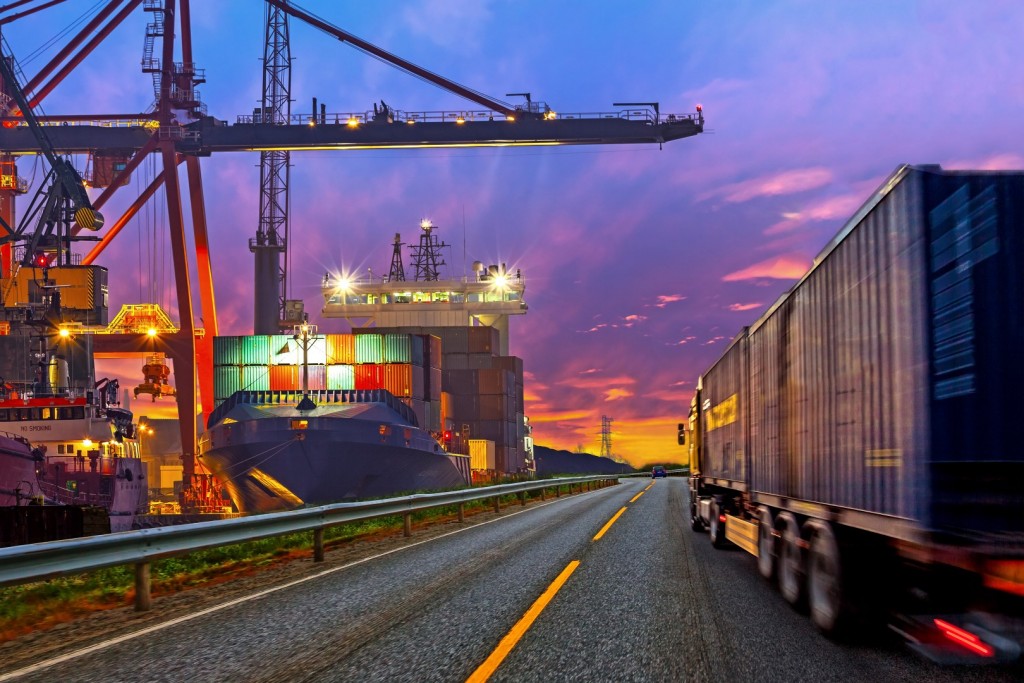Santova Logistics (SNV) has been a long-running stock pick of mine, for a decade or more now, and the group’s latest set of results reinforces the stock’s validity as growth story.
Check out my previous article, ‘Could Santova be a multi-bagger?’ here . In a recent JSE panel of stock-pickers I also presented Santova as an option.
Before I go into 2023 financial year (FY) results, here are some fascinating statistics on the group’s last decade of performance:
- Santova’s cumulative average growth rate (CAGR) for revenue in the last 10 years is 14% year-on-year (y/y). This is nearly triple inflation over this period, and is backed by new client signings (more than 14% y/y new clients in FY 23) and real volume growth (+10% y/y in FY 23).
- Santova’s headline earnings per share (Heps) CAGR is over 24% y/y, which makes it faster growing than market darling Capitec Bank Holdings (CPI) that has only seen a Heps CAGR of more than 19% y/y over the same decade.
- Despite this, Capitec trades at a circa 4x book value on a 16x price earnings (PE), while Santova shares pass hands at only 1.3x book value on a 6.1x PE. Not that Capitec (a domestic retail bank) is at all comparable with Santova (a global 4PL logistics operator), but long-running growth track records are hard to find on the JSE these days and appear disproportionately rewarded, except in Santova’s case … Oh, and Capitec is a domestic bank and Santova earns in excess of 70% of its income offshore? Who should have a higher market rating, a domestic or global company?
Against this impressive track record, Santova recently reported FY 23 results showing revenue kept growing (7.1% y/y), with margins widening further (operating margin of 43.9% versus FY 22’s 37.5%) driving profit growth of 24%.
The group generated large amounts of cash, has net cash (not debt) on its balance sheet and has steadily kept buying back its own shares in the market. Combined, this generated Heps growth of 22.1% y/y.
Santova’s current PE is only 6.1x. If we took the group’s Heps figure and fairly valued it at double its current PE (that is 12.2x), the resulting 1925 cps share price (versus the current market price of circa 950cps) would still be at a 10% PE discount to offshore peers (average PE of 13x).
At double the current share price, Santova’s 6.6x EV/Ebitda (enterprise value/ earnings before interest, taxation, depreciation and amortisation) versus global peers averaging 8.4x is still nearly circa 21% discounted against this relative measure.
Listen/read: Santova and Master Drilling two small caps earning hard currency
It’s worth saying that again: If we doubled Santova’s share price today, it would still be trading at a circa 10% discount to its peers listed on offshore markets.
Any which way you look at it, Santova is cheap.
This is particularly true against its growth track record (better than Capitec) and considering the fact that it is global and can carry on growing for decades to come before being considered mature.
Oh, and then there are “blue sky” initiatives that cost little to carry but could generate massive upside: a recent small but tactical beachhead into the massive US market, and the recent soft launch of a B2B (Business to Business) online marketplace (Santova offer the end-to-end logistics services).
Destockings
Environmentally, though, record freight rates have collapsed from highs in June 2022 and carry on falling as I write this. Global trade volumes have swung from a wild stocking to a destocking cycle at global retailers and wholesalers.
China’s great reopening has disappointed, the UK and Europe are both heading towards a recession, while the signals are flashing red in the US.
South Africa has just narrowly avoided a recession but could well be dragged down by global recessions with key trading partners, if not just by pure political own-goals.
Simply put: the world is looking fraught with downside risk.
Should this matter to an investor? Santova has the track record to prove that it can navigate huge turmoil and the stock is already cheap.
In a results presentation given last week, Santova CEO Glen Gerber summed it up well when he said:
“You build great businesses in tough times.”
And, certainly, Santova is a great business.
Keith McLachlan is chief investment officer at Integral Asset Management.
* McLachlan and some portfolios managed by Integral Asset Management hold Santova shares.

